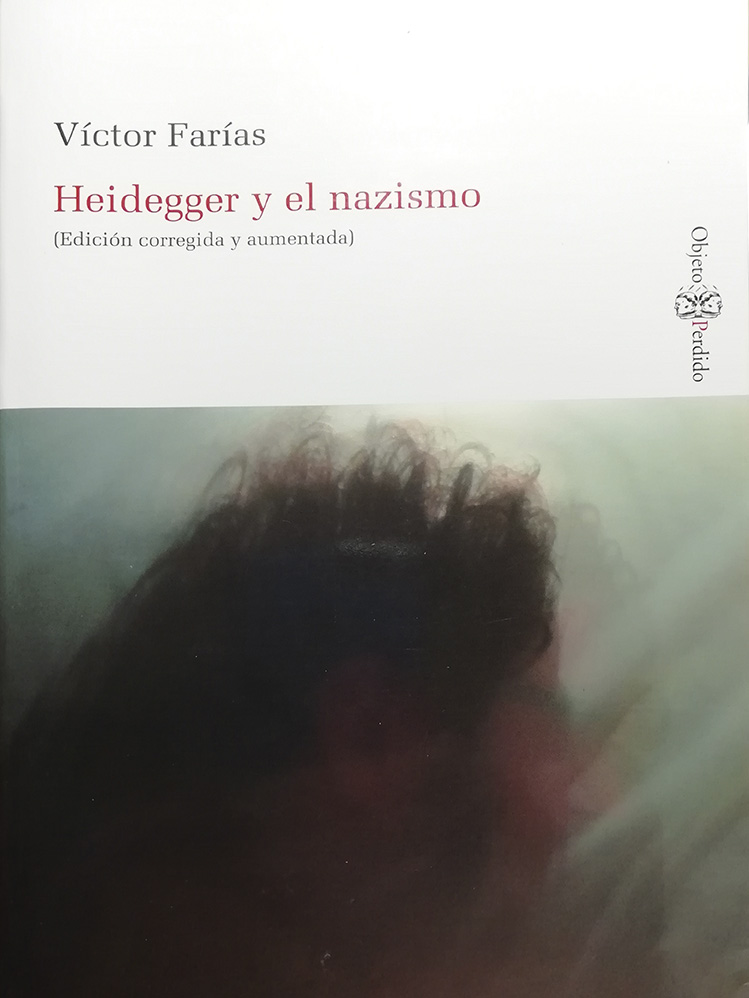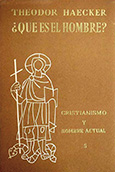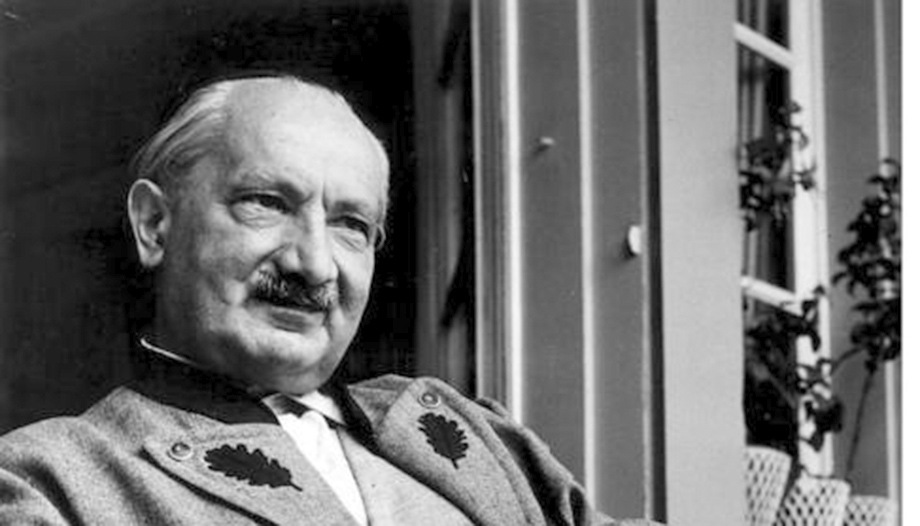From the mid-nineteenth century to the end of the twentieth, ideologies spread like epidemics in intellectual life. The "intellectuals" of the 20th century, a "new" class whose sign of identity must have been its critical sense (Zola's "I accuse"), submitted, with very heroic exceptions, to Nazi ideology in Germany and to communist ideology in the countries of the East, and in the rest of the world, for decades, they believed in communism with blind faith. And in the rest of the world, for decades, they believed in communism with blind faith. How could it happen?
A teacher from Germany
On another scale, the fascination exerted by Martin Heidegger (1889-1976) is also striking: father of French existentialism (Sartre) and of the continental hermeneutic turn (Gadamer, Ricoeur, Derrida, Foucault). "A master of Germany", according to Safranski's somewhat hagiographic biography. His triumph is surprising, because of the obscurity of his "hermeneutics". But above all, because he aligned himself with Nazi ideology. How can he be a "master" of philosophy, in the venerable tradition of Socrates?
The first problem covered up the second. Heidegger's obscurity provoked admiration for the "profound," unleashed interpretations, and concealed the extent of his Nazi commitment. His many admirers resisted for sixty years to believe it. But the research of Otto, Farias, and Faye; and, since 2014, the publication of his Black notebooks (1931-1951) and his family correspondence leave no room for doubt.
What is remarkable is that Heidegger's adherence was not a yielding, like others, to the social pressure of the moment, but that, in the background of the Nazi movement, he saw his philosophical thought and his idea of being incarnated. This is what deserves attention.
A wizard of language
He was undoubtedly a great teacher. He is remembered by many notable disciples (Gadamer, Arendt), even by those who distanced themselves from him (Löwith). His forte was "hermeneutics": to draw slowly from philosophical texts (especially pre-Socratic fragments), from Greek tragedy, from German romantic poetry, especially Hölderlin, and from the German and Greek words themselves.
Heidegger is convinced of the superiority of the German people, endowed with a "philosophical language". He sees Germany emerging from the homeland (Boden), united to the deep roots of the Greek and unfolding creatively in history, first with a poetic and artistic, then philosophical and scientific advance.
Heidegger thought of German as "the other philosophical language" after classical Greek, related to it by "Indo-European" (then in vogue) and little contaminated by Latin. Farías recalls that, for this reason, he advised him against translating into Spanish Being and timeHeidegger's translation, although there was already a meritorious and difficult translation by Gaós, and Rivera later made another one with great effort (Trotta). Heidegger brings out the fascinating brilliance of the pre-Socratic expressions, decomposing and recomposing them in German (with neologisms, prefixes, suffixes and hyphens, untranslatable) in a tireless succession of apparent tautologies with flashes of poetic genius, which is his characteristic style. This cemented both his continental prestige and the abhorrence of analytical philosophy, which, to this day, has not been able to swallow that "nothingness swims" (Carnap) or "what is the cosmic of the thing?".
Heidegger believed he was "hearing" the deep voice of being in the primitive pre-Socratic texts (Heraclitus, Parmenides) and in the etymologies of language (where man lives), and he amazed his students. Although the scarcity and fragmentariness of these same texts (collected by Diels in 1903) raises serious doubts. And it seems too much to grant him a tragic "forgetfulness of being" from the very origins until he recovers it, "Pastor (unique) of being".
From seminary to university
Heidegger was born in the small town of Messkirch. His father was a sacristan and cooper. His life was marked by his German folk roots, and by the scarcity of means. In a very Catholic environment, he entered the seminary of Constance at the age of 14 (1903); later in the one of Freiburg (1906). After finishing philosophy (1909), he tried unsuccessfully to enter the Jesuits, and followed theology in Freiburg. He identifies himself with the philosophy perennisHe also read other Catholic intellectuals and Brentano and Husserl. In February 1911, due to heart and respiratory problems, he was sent home.
To continue reading

At the age of 22, he only knows that he likes to study and begins mathematics in Freiburg. His ecclesiastical friends obtained scholarships for him to study Christian philosophy. He obtains a doctorate (1913), studies Duns Scotus (1915), deepens his knowledge of Eckhart and marries Elfriede, a Protestant (1917). Germany is at war. When his first son was born (1919), he no longer felt Catholic. He also distances himself from Catholic philosophy, and Husserl manages to be appointed his assistant with a small salary (by exception). In 1923, he moves to Marburg, where he begins a sentimental relationship with his student Hanna Arendt, who is 17 years old. In 1927 he ends Being and time, because Husserl urges him to succeed him in his chair in Freiburg. He occupies it in 1928 and gives numerous courses.
To continue reading

The (ephemeral) power and glory of the rector's office
The year 1933 is a triumphant and critical year in his life. The arrival of the Nazis to power provokes the resignation of Rector Möllendorf, and Heidegger's admirers push him to the rectorship. On April 21 he accepts and on May 1 he joins the Party. In the Speech of the Rectorate (inauguration) postulates the university's adherence to the project of the new Germany. And he is cheered by the official propaganda. The Berlin authorities are interested, and for a moment it seems to him that he is going to guide German university policy. He writes numerous reports. After so many years of hardship, the success of his lectures spreads to politics.
In the language of the time, "to unify" meant to adhere to the Nazi project and to purge the Jews, but also all dissidents. It is proven that Heidegger "unified". And he also undertook the Nazification of the students with political training sessions. In the summer of 1933 he organized an indoctrination camp, which did not go well, because other Nazi groups argued with him. And at the beginning of the course, he noticed opposition in the university, even among his own people, because of his hasty Nazification. In addition, he noticed that, in the governmental bodies, others enjoyed more confidence (and some considered him a deluded professor who "played at being a Nazi"). On April 27, 1934, he retired. It had become clear that his field was ideas, and he immersed himself in Nietzsche and Hölderlin. Although he continues to collaborate with the regime.
The subject of history
It is very difficult to understand his thought without its context. Which is that of a Germany still living on the romantic impulse of its recent unification as a nation, with a cultural, artistic, philosophical and scientific splendor without comparison (so it seems to them). Humiliated by the First World War and sold out - so the people think - by the liberal politicians ("Jews") who accepted an unconditional surrender instead of the armistice the military wanted. Germany seeks its place in the world, because it is the bearer of a superior culture at the forefront of humanity. Today, in a globalized world, we do not think of nations as the subjects of history. But that is what many Germans believed at the time. Hegel had taught it and Spengler had analyzed it in The decline of the WestHeidegger was well acquainted with the book. And there is a reason.
To continue reading

Heidegger is convinced of the superiority of the German people, endowed with a "philosophical language". He sees Germany emerging from the homeland (Boden), linked to the deep roots of the Greek and unfolding creatively in history, first with a poetic and artistic, then philosophical and scientific advance. Making the future it deserves. That is the Da-sein and the being that is realized in time. And as he shares with Nietzsche the idea that the old God of bourgeois morality is dead, he also shares with him (and later Sartre will share with him) that there is no pre-established human essence. The new man intrepidly makes himself with his "will to power" in time, "appears" as being and physis (nature) and thus poetically "unveils" its truth (aletheia) in history: in art, literature, thought and law, becoming a people, a nation and a state.
The Introduction to Metaphysics (1935)
This is what his disciples heard in the courses of those years, as shown by Farías and Faye and commented by González Varela. It is the guiding line of his Introduction to metaphysicswhich, in turn, is the explicit statement of Being and time.
"When we ask the question 'what is of being, what is the meaning of being,' we do not do so in order to establish a traditional-style ontology or to critically demonstrate the errors of its previous attempts. It is about something else entirely. It is about redirecting man's historical existence, and therefore always our own and our future existence as well, to the power of the original being that must be inaugurated, within the totality of history that is assigned to us." (Introduction to metaphysicsGedisa, Barcelona 2001, 43).
"Is being just an empty word? Or is being and the asking of the question of being the fate of the spiritual history of the West?" (84). "Being understood as phthisis is the force that arises." (118). "Let us try to glimpse a connection that is originally and uniquely Greek. [...] Being is essentially 'physis'. The prevailing that manifests itself in appearing [...]. Being, appearing gives rise to the exit of concealment. Insofar as the being is as such, it is put on and is uncovered, aletheia [...]. To be means to appear". (97). "Only victory in the struggle between being and appearance enabled the Greeks to wrest being from the entity and bring the entity into stability and into the open: the gods and the state, temples and tragedy, sports games and philosophy." (100-101). "1. The determination of the essence of man. ever is an answer, but essentially a question. 2. Asking this question and its decision are historical, and not in a generic way, but they constitute the historical event. The question of who man is must always be posed in essential connection with the question of what happens to being. The question of man is not anthropological, but historical and metaphysical." (130).
When this line is not perceived, only shreds of his thought are reached. Moreover, when the Nazi project failed, everything remained to be done. So he eliminated the most explicit references (also when reediting the texts). Thus the poetic birth of the "being" was sublimated and individualized. And he goes on a diatribe against "technology", inspired by mathematics, with its desire for pragmatic domination (that is "America") and against the "Asian" mass (the Soviet Union - note, by the way, the "national" tones). The German national impulse was the salvation against these ravings of being, but it did not come out. Therefore, one can only hope "may a god come to save us"as stated in the famous interview in Der Spiegel (1966), published posthumously (1976). But it is not the Christian God, but Hölderlin's romantic longings for transcendence, wherever they may be incarnated.
Theodor Haecker
– Supernatural Introduction to metaphysics makes several references, rather derogatory, to Christian thought and to a book, What is man? whose title in the form of a question seems to him out of place "because it already has an answer" (in faith). For this reason "loses all right to be taken seriously."
Whose book was it that could not be taken seriously? Hugo Otto answers this question in his study on Heideggerand is the origin of this article. Its author was Theodor Haecker (1879-1945). In a time of darkness, he was a true intellectual who saw and spoke ("J'accuse").
Haecker was born the same year as Heidegger and was a great literary and artistic critic. Full of cultural merits, he translated Kierkegaard and Newman and made them known in Germany. He also spread Dostoyevsky. He converted to Catholicism in 1921, and from 1933 he courageously opposed the Nazi regime.
That is why he deserves to be taken seriously. Born in the same year as Heidegger and also of humble origins, he was a great literary and artistic critic, linked to the magazines Der Brenner, Hochland y Die Fackel. Full of cultural merits: he translated Kierkegaard and Newman and made them known in Germany, and also spread Dostoyevsky. He converted to Catholicism in 1921. From 1933, he courageously opposed the Nazi regime, was declared "enemy of the State" (Staatsfeind) and was forbidden to write and speak in public. He was associated with the circle of The White Rose (Scholl brothers). And in 1945 he died in destitution after his Munich home was destroyed by Allied bombs.
The book What is man?published in 1933 (translated by López Quintás, Guadarrama, 1961), also deserves to be taken seriously. It is less brilliant than Heidegger, but wiser. At a time when evolutionism is being applied to history, he stresses that "the higher can explain the lower, but the lower cannot explain the higher.". That is why it is false "the proto-German heresy that clumsily attempts against this principle by affirming that God becomes, but does not IS". (27). "The philosophers of our day distrust the unity of man, we proclaim it [...]. We know by faith that races and peoples possess unity." (36). "This idea of man [...] was realized by God Himself in an ineffable way and above all measure in the Son of man." (39). Y "imposes on us the obligation to preserve and defend with all our strength as a physical home and spiritual ours that is" (41). "The idea that it is man who initially gives meaning to History [...] is the consequence first of all of a heresy, that is, of a defection of faith and, secondly, of a false conception of the creative power." (46).
To continue reading

"The phrase that man was created ad imaginem Dei was said at the beginning of the history of Humanity and it will subsist until the end of time. All true Philosophy, all true Science becomes a confirmation of this sentence for sincere men, men of common sense and good will". (196).









